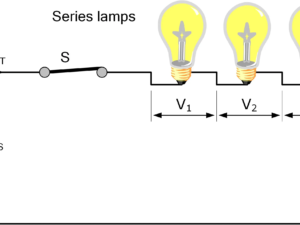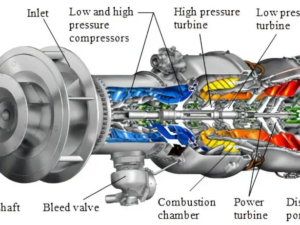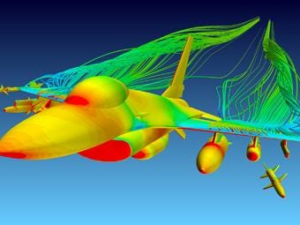Electronics
- Description
- Announcement
- Reviews

An electronics module typically refers to a self-contained unit that includes electronic components and circuitry designed to perform a specific function. These modules can range from simple circuits like a voltage regulator or LED driver to more complex systems like microcontroller boards, communication modules (e.g., Wi-Fi, Bluetooth), or sensor modules.
Key Characteristics of an Electronics Module:
- Functionality: Designed to perform a specific electronic function, such as power regulation, signal processing, or data communication.
- Integration: Often used as building blocks within larger electronic systems, enabling easier and faster development.
- Components: Includes essential electronic components like resistors, capacitors, transistors, ICs (Integrated Circuits), and connectors.
- Interfaces: May provide input/output (I/O) interfaces for connecting with other modules or systems, such as GPIO pins, serial communication ports, or wireless interfaces.
- Form Factor: Typically compact and designed for easy integration into devices or systems, sometimes including mounting options.
- Documentation: Comes with datasheets, wiring diagrams, and programming guides (if applicable) to help with integration and usage.
Examples:
- Microcontroller Module: A programmable device like an Arduino or Raspberry Pi, used for automation and control tasks.
- Sensor Module: A unit containing sensors like temperature, humidity, or motion sensors, providing data to a system.
- Power Module: A circuit designed to manage power distribution, such as a step-down (buck) converter.
Electronics modules are crucial in modern electronics, enabling rapid prototyping, customization, and scalability of electronic devices and systems.
What You Will Learn Under This Course.
- Fundamentals
- Semiconductors
- Printed Circuit Boards
- Servomechanisms
What is the target audience?
-
The target audience for an electronics module can vary depending on the type, complexity, and purpose of the module. However, the following groups are commonly targeted:
1. Electronics Hobbyists and Makers:
- Description: Individuals who build and experiment with electronic projects for personal enjoyment, education, or small-scale innovation. They often seek accessible, user-friendly modules for DIY projects, prototypes, and custom gadgets.
- Needs: Easy-to-use modules with clear documentation, compatibility with popular platforms (e.g., Arduino, Raspberry Pi), and affordable pricing.
2. Engineers and Developers:
- Description: Professional electrical or electronics engineers, system developers, and designers working on product development, prototyping, or industrial applications.
- Needs: High-performance, reliable modules with detailed technical specifications, robust interfaces, and scalability for integration into larger systems.
3. Educational Institutions and Students:
- Description: Schools, colleges, universities, and students involved in STEM (Science, Technology, Engineering, and Mathematics) education.
- Needs: Modules that are educational, well-documented, easy to interface with, and suitable for teaching and learning electronics concepts, often with support for classroom use and projects.
4. Research and Development (R&D) Teams:
- Description: Teams engaged in cutting-edge research, innovation, and product development in technology sectors such as robotics, IoT, AI, and telecommunications.
- Needs: Advanced, customizable modules with specialized features, high precision, and adaptability for experimental setups and new technology development.
5. Manufacturers and OEMs (Original Equipment Manufacturers):
- Description: Companies that design and manufacture electronic products, devices, or systems that include or depend on electronics modules.
- Needs: Reliable, mass-producible modules with consistency in quality, long-term availability, and compliance with industry standards.
6. System Integrators:
- Description: Professionals or companies that integrate various modules into complete systems for applications such as automation, control, communication, and energy management.
- Needs: Interoperable modules with standard interfaces, reliability in diverse environments, and comprehensive support for system integration.
7. DIY Enthusiasts and Innovators:
- Description: Individuals or startups who innovate by creating new products or custom solutions, often starting with prototypes before scaling up.
- Needs: Flexible, affordable modules with support for quick prototyping, scalability, and potential customization to meet unique project requirements.
8. Industrial Automation and Control Specialists:
- Description: Professionals in industries like manufacturing, energy, and utilities who need modules for monitoring, automation, and control systems.
- Needs: Durable, reliable modules with industry-grade certifications, real-time performance, and long-term support.
Summary:
The target audience for electronics modules includes a wide range of users from hobbyists to professional engineers, educators, and manufacturers. Each group has specific needs, from ease of use and affordability to high performance, reliability, and scalability. Understanding these audiences helps in designing, marketing, and delivering electronics modules that meet their diverse requirements.
For More Details
Schedule and Cost
Weekly
Evenings Mon to Fri 6-8.30 pm
Ghc1000 per module (2 months)
Weekends,
Saturday 9 to 4 pm; Sunday 2-6 pm
Ghc1000 per module
Types of Programmes
-
Evening and weekend
-
Block release
-
Pre-employment
-
Special requests from formal and informal sectors and short courses for industry/commerce
-
Coursework/project support for those enrolled in tertiary education
LOCATION: Yellow Container, Obom Road - Kasoa - Ghana
Archive
Working hours
| Monday | 6:00 pm - 8.30 pm |
| Tuesday | 6:00 pm - 8.30 pm |
| Wednesday | 6:00 pm - 8.30 pm |
| Thursday | 6:00 pm - 8.30 pm |
| Friday | 6:00 pm - 8.30 pm |
| Saturday | 9:00 am - 4:00 pm |
| Sunday | 2:00 pm - 6:00 pm |
Archive
Working hours
| Monday | 6:00 pm - 8.30 pm |
| Tuesday | 6:00 pm - 8.30 pm |
| Wednesday | 6:00 pm - 8.30 pm |
| Thursday | 6:00 pm - 8.30 pm |
| Friday | 6:00 pm - 8.30 pm |
| Saturday | 9:00 am - 4:00 pm |
| Sunday | 2:00 pm - 6:00 pm |
Archive
Working hours
| Monday | 6:00 pm - 8.30 pm |
| Tuesday | 6:00 pm - 8.30 pm |
| Wednesday | 6:00 pm - 8.30 pm |
| Thursday | 6:00 pm - 8.30 pm |
| Friday | 6:00 pm - 8.30 pm |
| Saturday | 9:00 am - 4:00 pm |
| Sunday | 2:00 pm - 6:00 pm |








